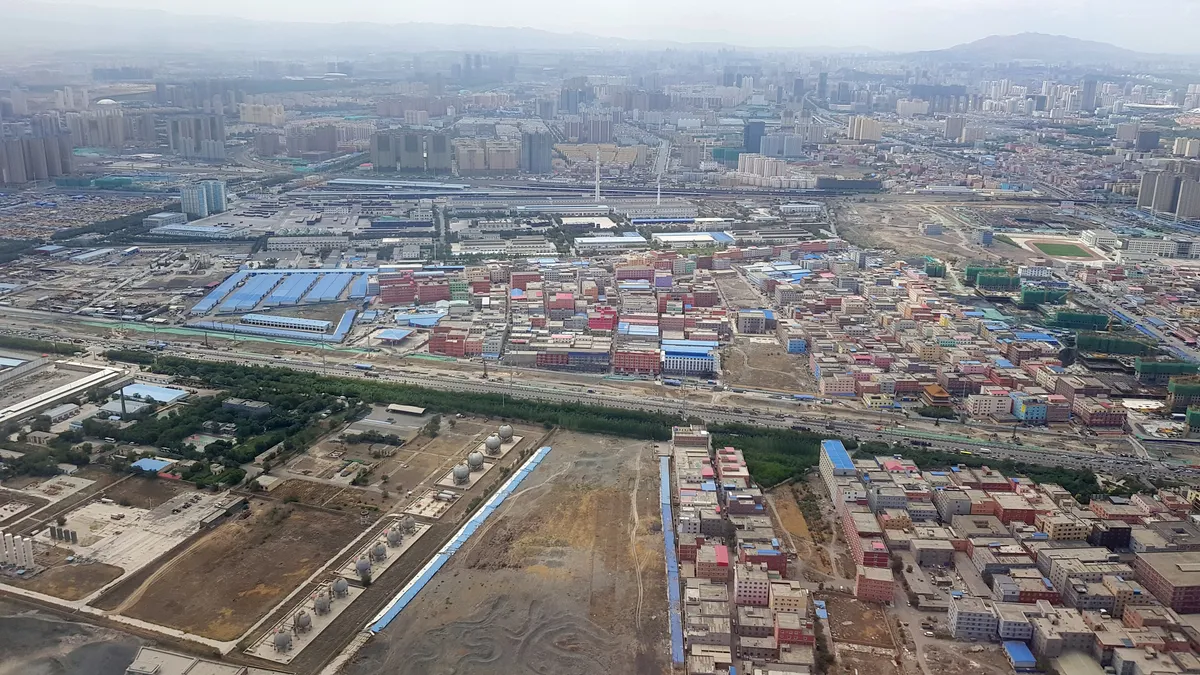UPDATE: March, 12, 2020: In a joint statement Tuesday the National Retail Federation, Retail Industry Leaders Association, American Apparel & Footwear Association and the U.S. Fashion Industry Association responded to the Australian Strategic Policy Institute (ASPI) report, stating its members do not tolerate forced labor and encouraging further action to stop the perpetuation of forced labor in China. "The reported situation is of a scale, scope, and complexity that is unprecedented during the modern era of global supply chains," reads the statement. The joint statement described companies "considering all available approaches to address the situation," and called on the U.S. government to form a multi-stakeholder working group to find solutions.
Also after the publication of the ASPI report, Nike issued a statement supporting the industry message. It said it "does not have relationships with" the factories in the Xinjiang Uighur Autonomous Region (XUAR) named in the ASPI report and does not source directly from the XUAR. However, the company is "conducting ongoing diligence with our suppliers in China to identify and assess potential risks related to employment of people from XUAR."
Regarding the Qingdao Taekwang Shoes Co. factory outside Xinjiang, which is named in the report as using Uighur labor and of which Nike is a "primary customer," Nike said: this facility "is currently seeking expert advice on the best and most responsible approach to conclude the employment of remaining employees from XUAR" and "has confirmed that their employees from XUAR have the ability to end their contracts at any time without repercussion, and historically many have chosen to do so," according to the statement.
Dive Brief:
- Eighty-three automotive, technology and apparel firms employ factories using Uighur and other ethnic minority labor, according to a new report from the Australian Strategic Policy Institute (ASPI), an Australian government-funded think tank. The 27 factories included in the report are spread across nine Chinese provinces.
- Uighurs are a Muslim ethnic minority in China that is the target of interrogation, surveillance, internment, forced labor and violence from the Chinese government. The report details hundreds of workers at factories employed by Apple and Nike are working amid abuse and discrimination to produce goods during the day and attending mandatory classes at night wherein they learn Mandarin and sing the Chinese national anthem. Nike's and Apple's codes of conduct for suppliers forbid forced labor.
- The report demonstrates the Uighur crisis now stretches beyond Xinjiang Province, where it originated, and across product categories. Roughly 80,000 Uighurs were moved out of Xinjiang in Western China toward the coasts between 2017 and 2019 and ASPI said transferring such workers is growing in frequency.
Dive Insight:
Supply chains that contract with suppliers exposed to Uighur labor directly or indirectly are subject to reputation risk and international and governmental reactions to the crisis that could present legal and supply risks.
"Companies using forced [Uighur] labour in their supply chains could find themselves in breach of laws which prohibit the importation of goods made with forced labour or mandate disclosure of forced labour supply chain risks," reads the report. The U.S. is one country with such laws.
The geographic spread of Uighur labor makes the task of keeping it out of supply chains even more difficult for supply chain managers, explained ASPI. Complex multi-tiered supply chains add difficulty and often subtract transparency.
Any company at risk of exposure should, therefore, orchestrate robust third-party audits of its suppliers and "seek to use its leverage to address improper labour practices," according to the report. However, ASPI does not recommend immediately cutting ties with suppliers who may be exposed or involved in Uighur labor, as abrupt actions may put these workers in greater danger. Buyers should then cut ties with suppliers who refuse to comply with requests to change labor practices. Making audits and reports public is another way to avoid reputational risk.
This story was first published in our weekly newsletter, Supply Chain Dive: Procurement. Sign up here.















